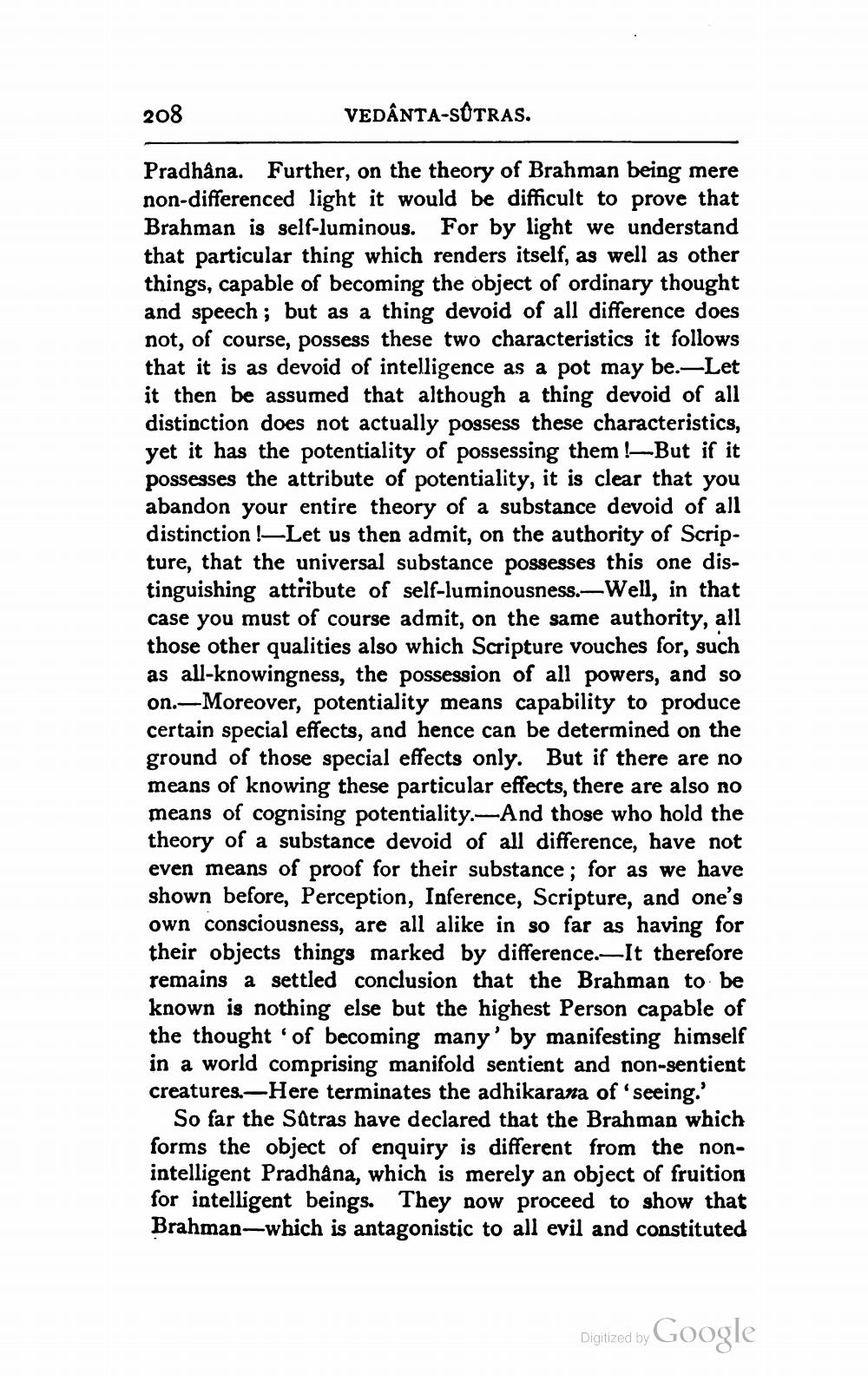________________
208
VEDÂNTA-SOTRAS.
Pradhana. Further, on the theory of Brahman being mere non-differenced light it would be difficult to prove that Brahman is self-luminous. For by light we understand that particular thing which renders itself, as well as other things, capable of becoming the object of ordinary thought and speech ; but as a thing devoid of all difference does not, of course, possess these two characteristics it follows that it is as devoid of intelligence as a pot may be. Let it then be assumed that although a thing devoid of all distinction does not actually possess these characteristics, yet it has the potentiality of possessing them !-But if it possesses the attribute of potentiality, it is clear that you abandon your entire theory of a substance devoid of all distinction !—Let us then admit, on the authority of Scripture, that the universal substance possesses this one distinguishing attribute of self-luminousness.-Well, in that case you must of course admit, on the same authority, all those other qualities also which Scripture vouches for, such as all-knowingness, the possession of all powers, and so on.-Moreover, potentiality means capability to produce certain special effects, and hence can be determined on the ground of those special effects only. But if there are no means of knowing these particular effects, there are also no means of cognising potentiality.-And those who hold the theory of a substance devoid of all difference, have not even means of proof for their substance; for as we have shown before, Perception, Inference, Scripture, and one's own consciousness, are all alike in so far as having for their objects things marked by difference.-It therefore remains a settled conclusion that the Brahman to be known is nothing else but the highest Person capable of the thought of becoming many' by manifesting himself in a world comprising manifold sentient and non-sentient creatures.--Here terminates the adhikarana of seeing.'
So far the Satras have declared that the Brahman which forms the object of enquiry is different from the nonintelligent Pradhana, which is merely an object of fruition for intelligent beings. They now proceed to show that Brahman—which is antagonistic to all evil and constituted
Digitized by
Digitized by Google




